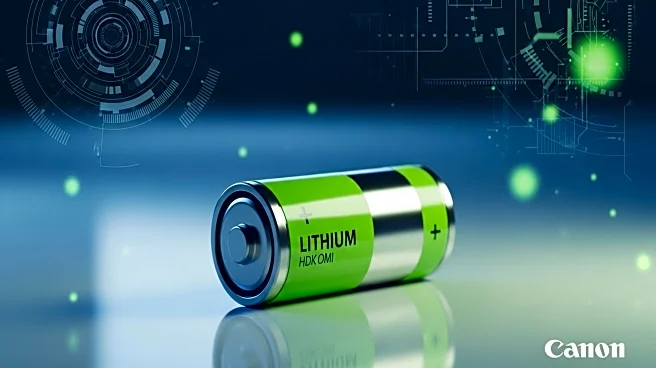What's Happening?
Portugal is advancing its lithium extraction capabilities to support Europe's transition to clean energy. With the largest lithium reserves in Europe, Portugal is focusing on battery-grade production to reduce dependence on Chinese refining. The government plans to launch an international tender for lithium prospecting licenses in 2025, targeting six regions. Projects like the Barroso Lithium Project and Montalegre are expected to supply lithium for up to 500,000 electric vehicles annually by 2027. These initiatives are aligned with the EU's Critical Raw Materials Act, which aims to secure 10% of lithium needs domestically by 2030.
Why It's Important?
Portugal's lithium strategy is crucial for Europe's energy security and economic resilience. By reducing reliance on Chinese lithium refining, Europe can mitigate geopolitical risks and foster a more sustainable supply chain. The development of local lithium resources supports the EU's decarbonization goals and offers significant investment opportunities. Portugal's policies, including streamlined mining regulations and subsidies for lithium-related technologies, reflect a commitment to both economic growth and environmental sustainability.
What's Next?
Portugal's government is expected to continue prioritizing lithium development, with exploration projects slated for 2027. The upcoming tender in 2025 will open new opportunities for sustainable mining firms. As environmental assessments progress, Portugal aims to balance ecological concerns with industrial growth. The country's efforts to diversify lithium sources could significantly impact EU imports, potentially cutting them by half by the 2030s.
Beyond the Headlines
Portugal's approach to lithium extraction includes innovative methods like recovering lithium from geothermal sources, minimizing land disruption. This reflects a broader trend towards sustainable mining practices. The geopolitical implications of reducing dependence on Chinese lithium are significant, as resource access tensions continue globally. Portugal's strategic alignment with EU standards positions it as a key player in Europe's green industrial strategy.








